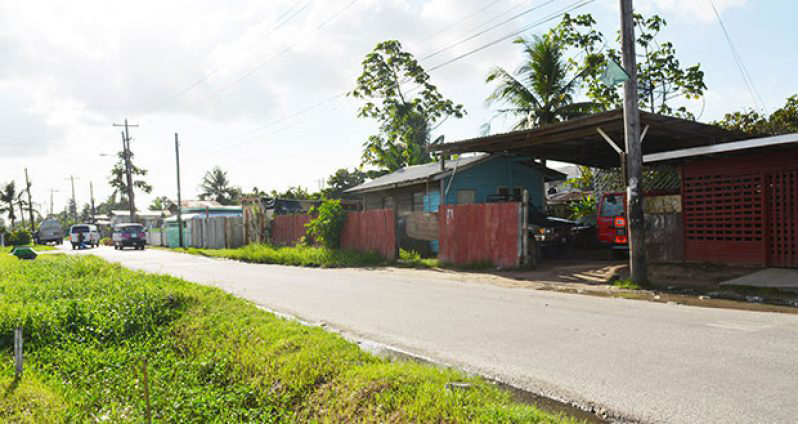When one sees the newspaper headlines such as “GUYSUCO EMPLOYEES, AMBUSHED, ROBBED” or “SQUATTERS ROB NEIGHBOURING RESIDENTS”, it alarms those who yearn for a Guyanese society which is peaceful, progressive and not sliding into backwardness. And it becomes more troubling when the news media is fully distracted by mostly political news and the COVID19 pandemic and gives little space or attention to the terrible social blemish of Squatting. We are therefore constrained to revisit the scourge of squatting which has been erupting on the East Coast Demerara and East Bank Demerara. On the East Coast, the lands squatted on are mostly lands belonging to the sugar plantations. The squatters had destroyed years of scientific work and thousands of young sugar plants costing the Industry $2 billion and setting back the revitalisation of the Industry.
Some squatters on the sugar estate lands are brazenly demanding that GUYSUCO reward their theft by giving to them prime land by what is euphemistically called “regularising”. They are not concerned that the Plantation’s imperatives to replant their land and provide employment for hundreds of people demanding that the State award them house lots in any of the housing estates thus jumping the queue of the thousands who had been patiently awaiting the processing of their applications.
Some politicians have been trying to make political hay by currying favour with the squatters telling them that squatting is morally and even legally correct. The State, on the other hand, responding to political pressures and the fact that some of its officers are sympathetic to the squatters’ demands are showing extraordinary tolerance instead of exerting the full power of the Law.

In the absence of continuous strong statements against squatting from those in authority, squatters feel emboldened and have begun to invade private property. On the East Bank Demerara, there have been a number squatting groups s threatening violence on the owners of the land with the Police often turning a blind eye.
Squatters usually give a predictable hard-luck story to explain why they were squatting. They usually say they have nowhere to go and that they are poor and unemployed. When they are questioned as to from where they came, they do not answer but become hostile and aggressive. In fact, all squatters are actuated by human greed- they desire to steal someone else’s property. This is seen by the fact that some squatters have houses of their own which they tenant or when they embark upon squatting they do so with relatives who each mark out a piece of land. The claim that they are in poverty is belied by their lifestyle where many of them have regular rum-drinking parties. Some may even be encouraged by shortsighted politicians to squat.
Squatting is one of the most environmentally negative activities in any Society. The habitations built by squatters are primitive and unhealthy and these so-called settlements have no roads, water supply or electricity. They do not have any drainage or rubbish disposal and the toilets are primitive pit latrines; some of them do not even bother to build pit latrines. Squatter settlements are places which are unhygienic and unhealthy. Children growing up in squatter environments attend school very irregularly, adding to the illiterate population. Squatter settlements usually host a criminal element who prey on the surrounding population.
Mass squatting in colonial times was an unknown phenomenon and first came about in the early 1960s during the racial disturbances in the villages, especially on the East Coast Demerara.
Squatting could be eliminated or controlled if the following measures are effectuated:-
(a) Educate the population continuingly that squatting is illegal and that it is theft. Many squatters do not realise that squatting is theft. Such education could be done in the media and the teachers’ college and the primary schools.
(b) Many squatters are under the false impression that if they built a structure on someone else’s land, they cannot be removed. They should emphatically learn the truth that if a squatter builds a structure on someone else’s land, the structure belongs to the land and its legal owner and not the squatter.
(c) Squatting should be declared a criminal offence.
(d) The Police should always be prepared to visit squatter areas since these areas are incubators of violence.
(e) News reporters are often naively taken in by squatters’ hard-luck stories and by uncritically publishing such stories fuel the illegality of squatting. Sometimes, such reporters could open their newspapers for libel suits.
(f) The Law has been amended to make it impossible to prescribe on State lands. Unfortunately, private land was left unprotected and the 12-year rule which was adopted from English legislation was allowed to remain. The 12-year rule is inappropriate to a rural society which has a large emigration. Guyana should revert to the 33-year rule for private land.





.jpg)








